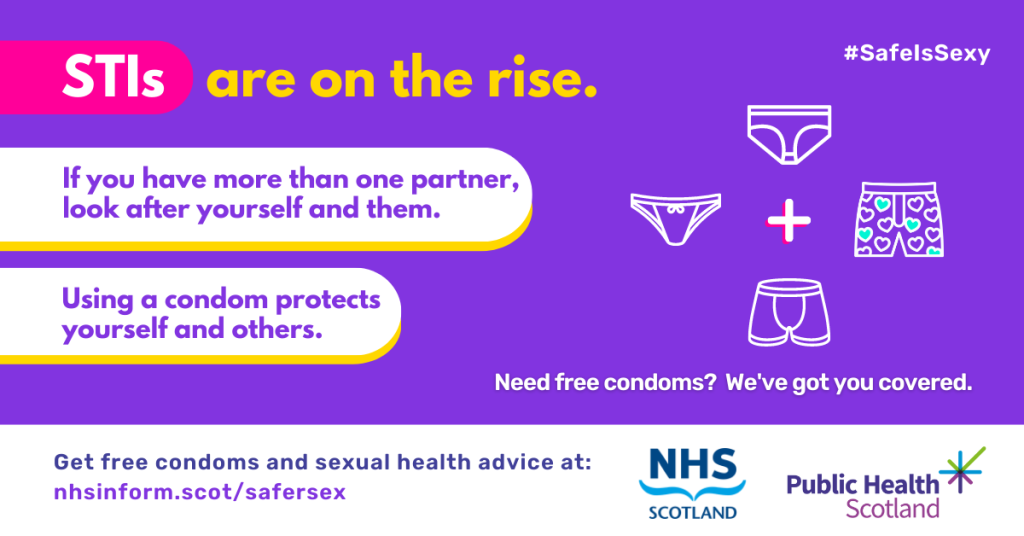Sexually Transmitted Infections (STI’s) are on the rise
STIs are on the rise across Scotland.
Cases of sexually transmitted infections (STIs), including gonorrhoea and chlamydia, are increasing among young people under the age of 25 in Scotland.
The number of infections has more than doubled since 2017. That increase means that 1 in every 200 people aged under 25 has gonorrhoea.
Most STIs are easily treated, but they can cause complications and lead to health problems if left untreated.
The best way to reduce your risk of STIs is to use a condom when having vaginal, anal or oral sex.
Don’t be afraid to ask questions or seek advice from healthcare professionals regarding your sexual health.
You can make an appointment with your nearest Sexual Health Service and get it sorted.
Many young people worry about going to the sexual health clinic to ask questions about or get checked for STIs. The services are free, confidential and non judgemental. It’s important to get checked and make sure you do follow up any treatment to protect yourself and your partner from further infection.
More information HERE on STIs, safer sex and testing

